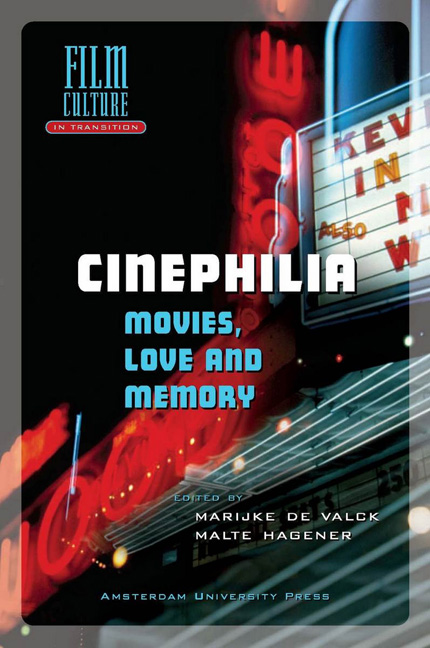Book contents
Drowning in Popcorn at the International Film Festival Rotterdam?: The Festival as a Multiplex of Cinephilia
Published online by Cambridge University Press: 25 January 2021
Summary
Rotterdam was the first international film festival I attended, and those first few years remain precious in my mind as a time of nascent cinephilia, opening my eyes to filmmakers that I never would have discovered staying at home even in such a film savvy city as Toronto, who [sic] has its own excellent festival; anyone concerned that Rotterdam has grown unwieldy in recent years should come to Toronto and try to find anything like a familial environment or an unheralded discovery.
Mark Peranson, editor-in-chief of Cinema ScopeOn the night of Wednesday, 28 June 1972, seventeen spectators attended the opening screening of the new film festival “Film International Rotterdam.” The sight of an all but empty cinema theatre prompted the Councillor of Arts to return without performing the official opening ceremony for the film week that had been described as “super-experimental.” This label was the consequence of the outspoken – and controversial – taste preferences of the founder of the festival, Huub Bals, who was also the co-founder of the Féderation Internationale des Festivals Indépendents that included the Quinzaine des Réalisateurs (Cannes) and the Internationales Forum des Jungen Films (Berlin). Though the festival's consistent focus has been on art cinema, experimental works, and southern (Asian) developing film countries, ever since its foundation, the popularity of the festival has increased dramatically. Today, the International Film Festival Rotterdam is the second largest audience film festival in the world, with an attendance of 355,000 during the 2004 festival. This number also positions the IFFR as the largest multiple-day cultural event in the Netherlands. The IFFR pleases its visitors by offering the best films of the festivals of the preceding year before their release in theatres, national and international premiers that haven't (yet) found distribution, a first feature competition program, thematic programs, and highly popular Q&A sessions with filmmakers themselves, after the screenings of their films.
But we must also remain a bit wary of the attendance figure of 355,000 because, as IFFR's Cinemart director Ido Abram un-euphemistically puts it, “the number is a lie.” What we should bear in mind when we read this figure is that it does not represent the number of actual visitors to the festival.
- Type
- Chapter
- Information
- CinephiliaMovies, Love and Memory, pp. 97 - 110Publisher: Amsterdam University PressPrint publication year: 2005



